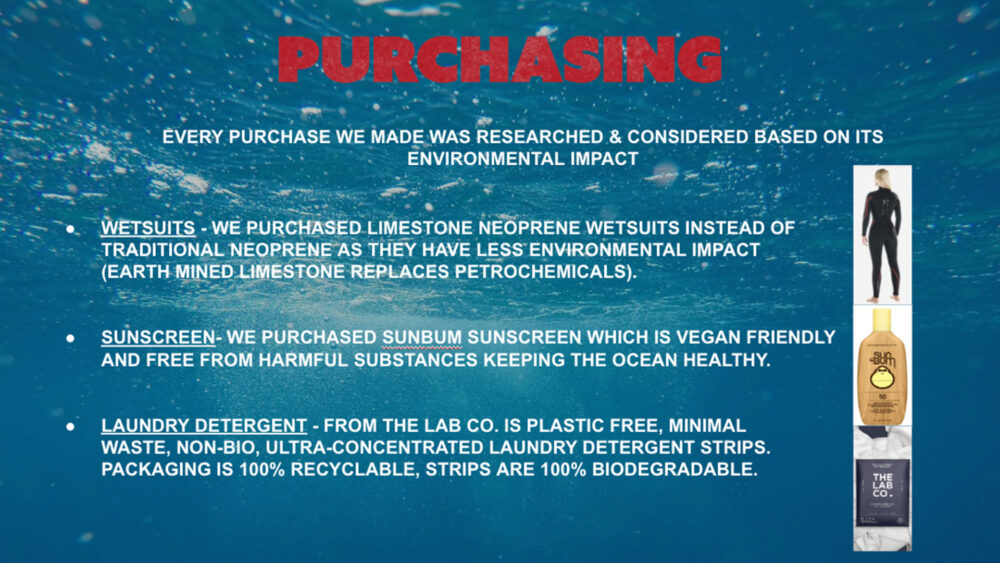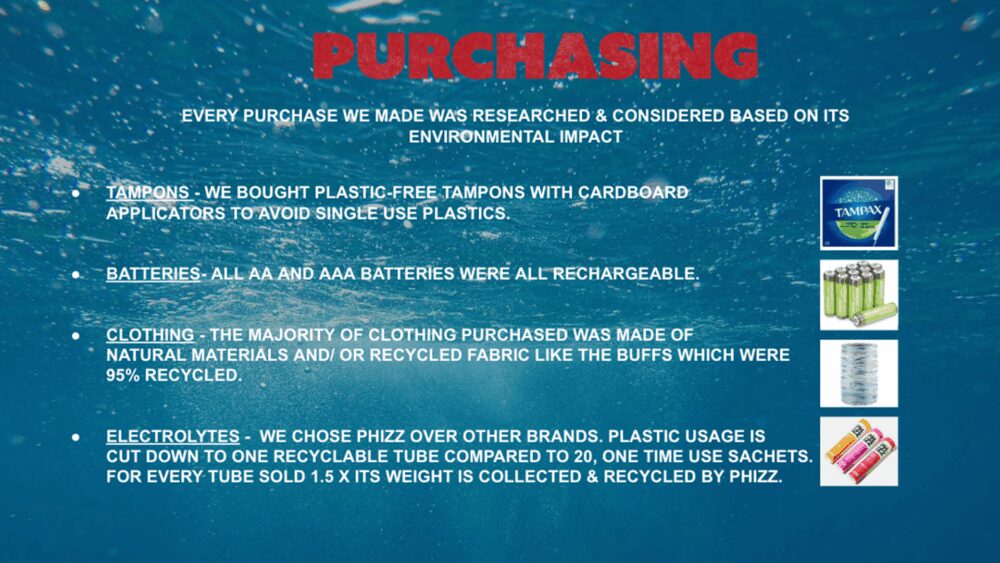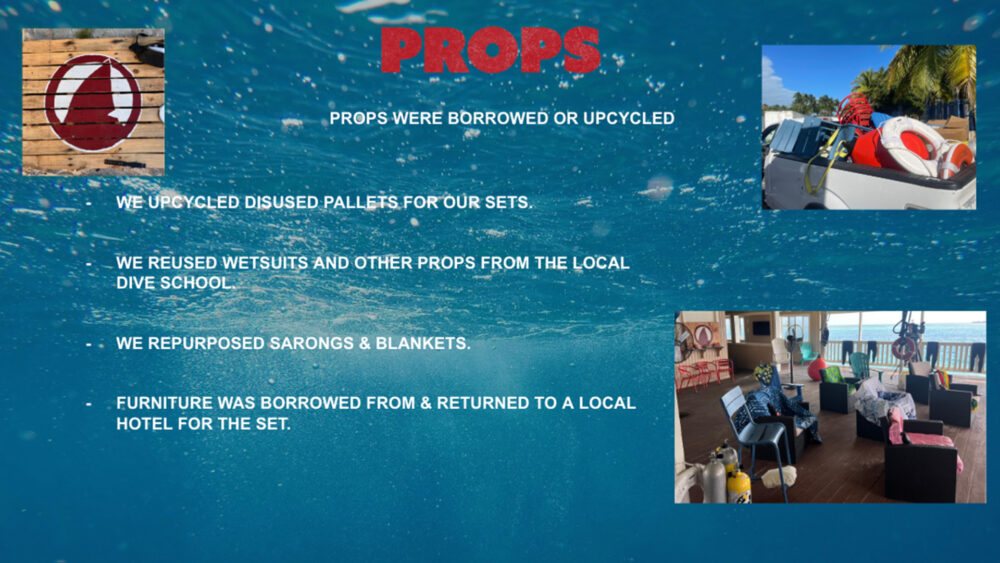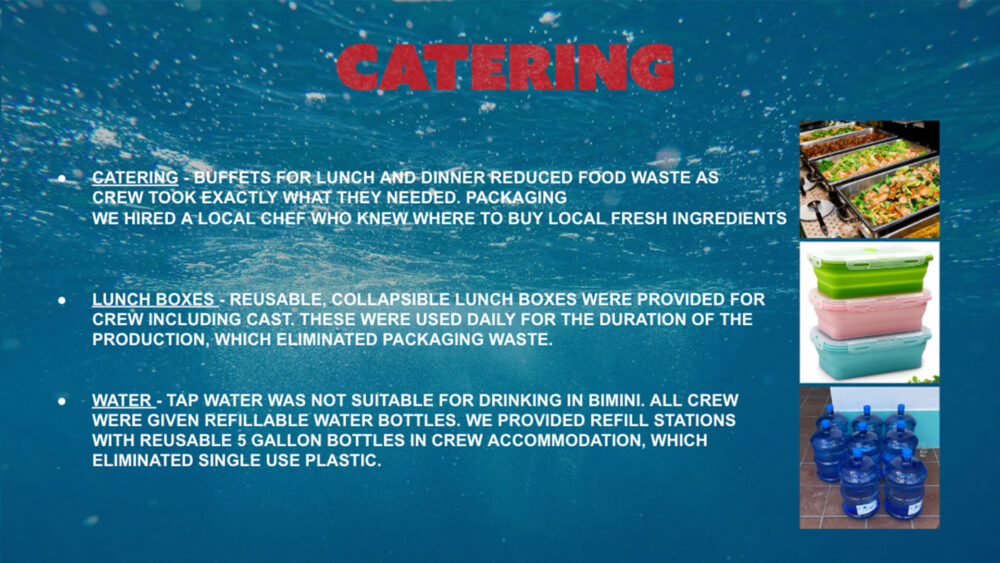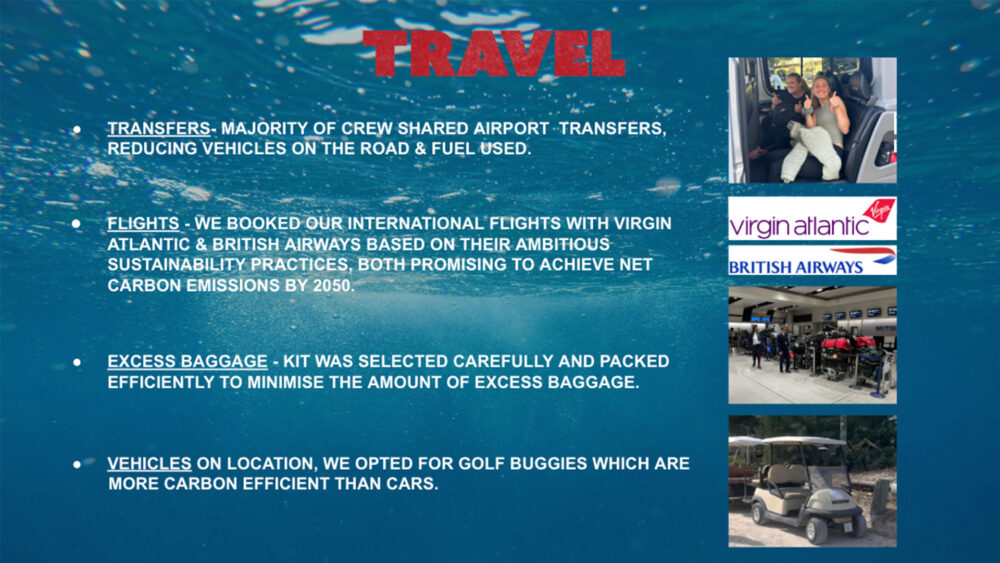In November last year Plimsoll Productions brought 43 crew members and celebrities to Bimini in the Bahamas to film a new Natural History – meets – Factual Entertainment series about Sharks. But what made this production stand out wasn’t just its thrilling content, it was the team’s commitment to minimising its environmental impact every step of the way.
From the outset, the production made conscious choices to reduce their carbon footprint. Every product used on set was carefully researched to find eco-friendly alternatives. Sea-safe sunscreen protected both skin and the coral reefs, limestone-based neoprene replaced traditional wetsuits, laundry was done with plastic-free, non-bio detergent sheets, batteries were rechargeable, plastic free hygiene products and even the electrolytes were chosen because of the company’s eco friendly mission statement.
Even small everyday decisions, like sharing airport transportation, refilling water bottles, bringing packed lunches and beach litter picks all helped reduce waste and emissions.
